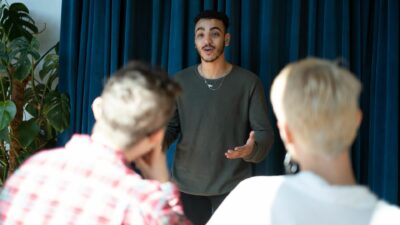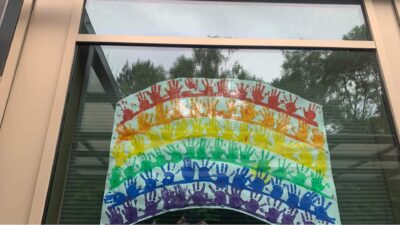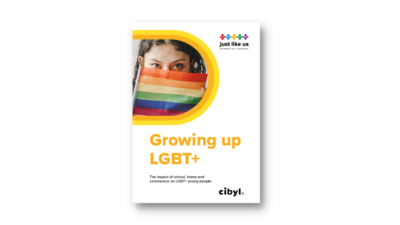
Being a LGBT+ young person in the pandemic
Blog
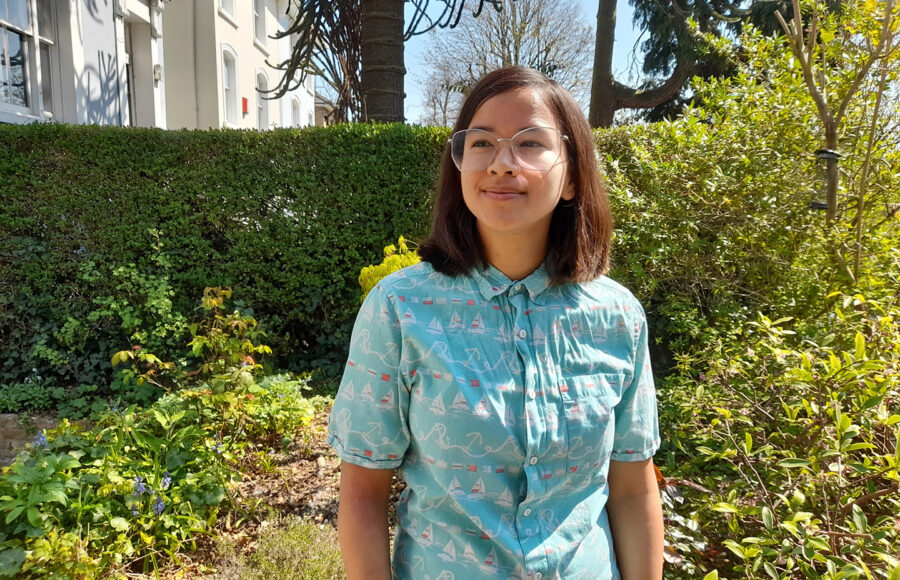
The pandemic has presented unique challenges for LGBT+ young people in the UK – one in four (25%) is facing daily tensions in the place they are living and 68% say their mental health has worsened, compared to half (49%) of non-LGBT+ young people.
LGBT+ young people are also more than twice as likely to worry for their mental health on a daily basis during the pandemic than their non-LGBT+ peers, new independent research by Just Like Us has found.
We asked two of our young LGBT+ ambassadors who volunteer with Just Like Us to share their experiences of the pandemic.
Ramses
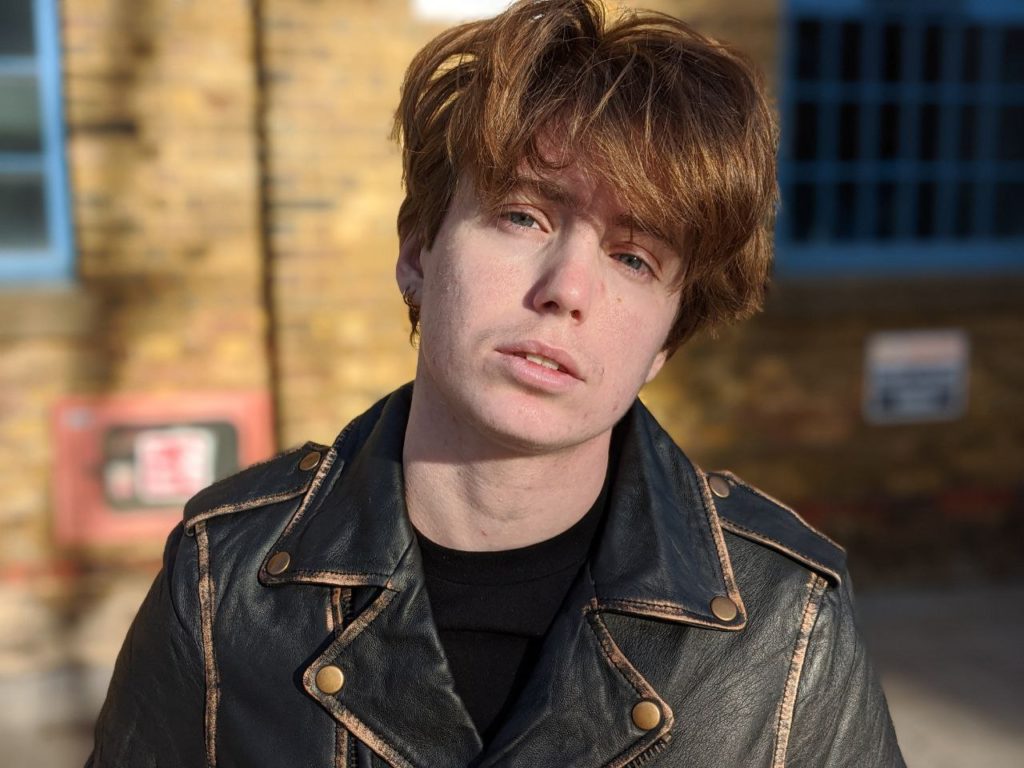
“I started my transition right after the first lockdown, and I would have loved to be able to see my friends in person. I had always imagined reaching those milestones with them by my side, and it was really tough to only be able to see each other on Zoom. I hadn’t felt that lonely in years.
“My mental health got worse after I went on furlough. My sleeping and eating schedules started being irregular, I would always feel emotionally drained and exhausted, and couldn’t find the motivation to do anything. Being involved as ambassador with Just Like Us really helped connecting again with my community and getting back on my feet.
“While I live with my genderfluid partner and I’m out to my family, that’s not the case for many of my friends. A close friend of mine has been misgendered daily from the start of the pandemic, another person very close to me is still in the closet and struggling with their mental health, and a lot of my friends have been exploring their gender identity as well. Some friends came out as non-binary, some are still questioning, and I would have loved to provide some support in person. Being stuck in an unsupportive environment, or being forced back in the closet, can be incredibly detrimental for young people’s mental health.
“As a trans person, spaces where I could be myself and be gendered correctly, while growing up, have literally saved my life. When I wasn’t out to my parents, I relied on my friends and school for the validation I needed, and to feel safe from transphobic and homophobic remarks.
“For many LGBT+ young people, school is the only place where they can safely affirm their gender identity and sexuality, and where they can safely explore them. It also provides a chance to build the first connections to their community through Pride groups and LGBT+ peers.”
Pippa
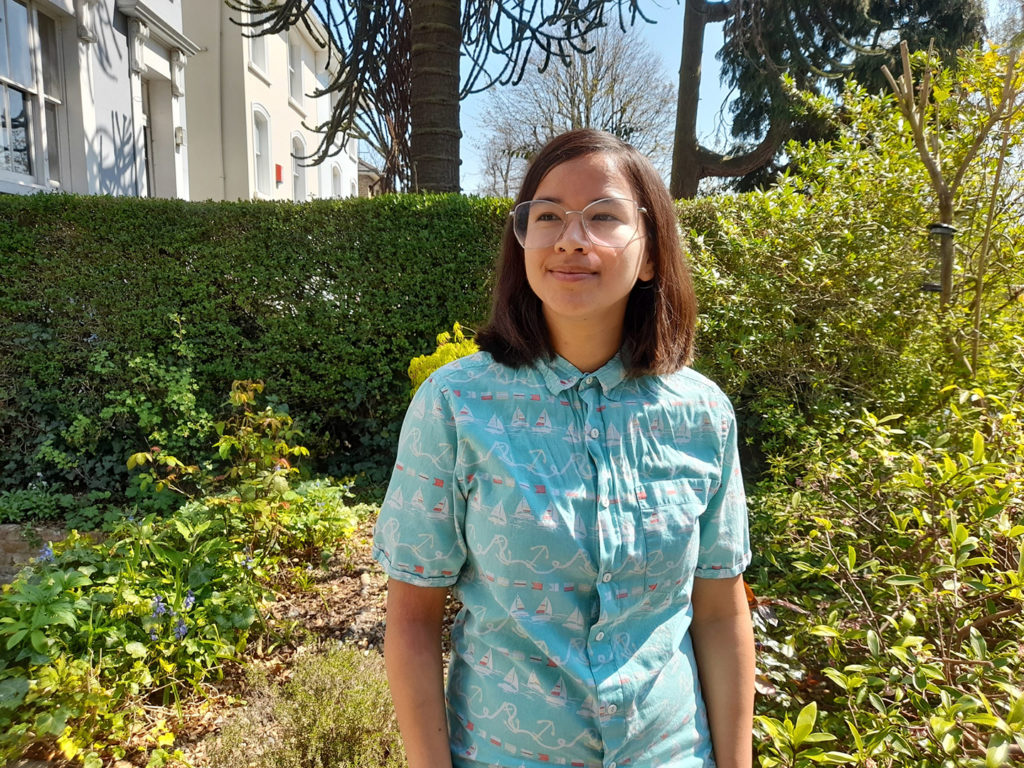
“I have been lonely during lockdown, because my main social circle consisted of other LGBT+ people. Because we’re not a biological family, we have always gathered in public spaces, rather than the more traditional household. Now that public spaces are closed, we can’t see each other anymore.
“I have friends who have had to return to families that are unaccepting, and either go back into the closet or live with tension hanging over their heads 24/7. Obviously many people are having a difficult time during the pandemic for various reasons, but to have this compounded by feeling uncomfortable in the only space you have, is extra painful.
“I have a nice living space, but being stuck in the same place all the time, and not being able to see all of my friends has made me feel very trapped and isolated.
“In lockdown, many young people are only able to hear the views that they are taught at home. There is no opportunity to socialise in the same way, and listen to outside influences. It is important that schools show support for LGBT+ young people during lockdown so that people in homophobic, biphobic and transphobic households know that these are not the only views there are. This is important both for young LGBT+ people themselves, who might otherwise internalise this bigotry, but also for straight/non-LGBT+ young people, who might otherwise never engage with LGBT+ communities.”
